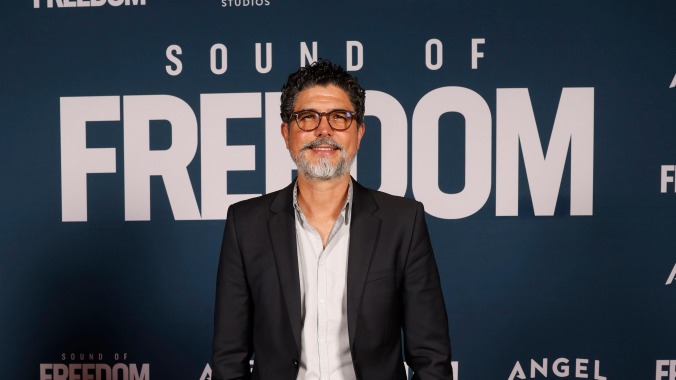Sound Of Freedom director feels need to defend his movie, stops just short of defending Jim Caviezel
Alejandro Monteverde wrote the movie long before QAnon became a thing and has distanced himself from the politics of his star

If you skip the double-strike in Hollywood and the encouraging success of Barbie and Oppenheimer, the biggest story in show-biz this summer (so, maybe third biggest?) has been the surprising box office run of Sound Of Freedom, a standard “based on a true story” thriller that happens to hit some QAnon talking points and happens to star a guy with some QAnon leanings. And happens to be very popular with the QAnon-leaning crowd. And happens to have been involved in a dumb conspiracy of its own. And also a former president who has been indicted several times hosted a screening of it.
But in all of the noise surrounding Sound Of Freedom, one thing has apparently been lost: Writer and director Alejandro Monteverde didn’t actually want any of that to happen. In a Variety piece that seems aghast at the idea of any movie having an unintended impact or interpretation, Monteverde explains that the movie’s origins go back to 2015, “before QAnon emerged” (as Variety puts it). It was originally an entirely fictionalized story about child sex trafficking inspired by a segment Monteverde saw on the news that really freaked him out, until producer Eduardo Verástegui—the Variety story doesn’t say this, but he’s a far right anti-abortion activist—introduced Monteverde to former Department Of Homeland Security agent Tim Ballard, who founded a non-profit anti-trafficking group called Operation Underground Railroad (which he left earlier this year, apparently after some kind of internal investigation into complaints made against him).

 Keep scrolling for more great stories from A.V. Club.
Keep scrolling for more great stories from A.V. Club.